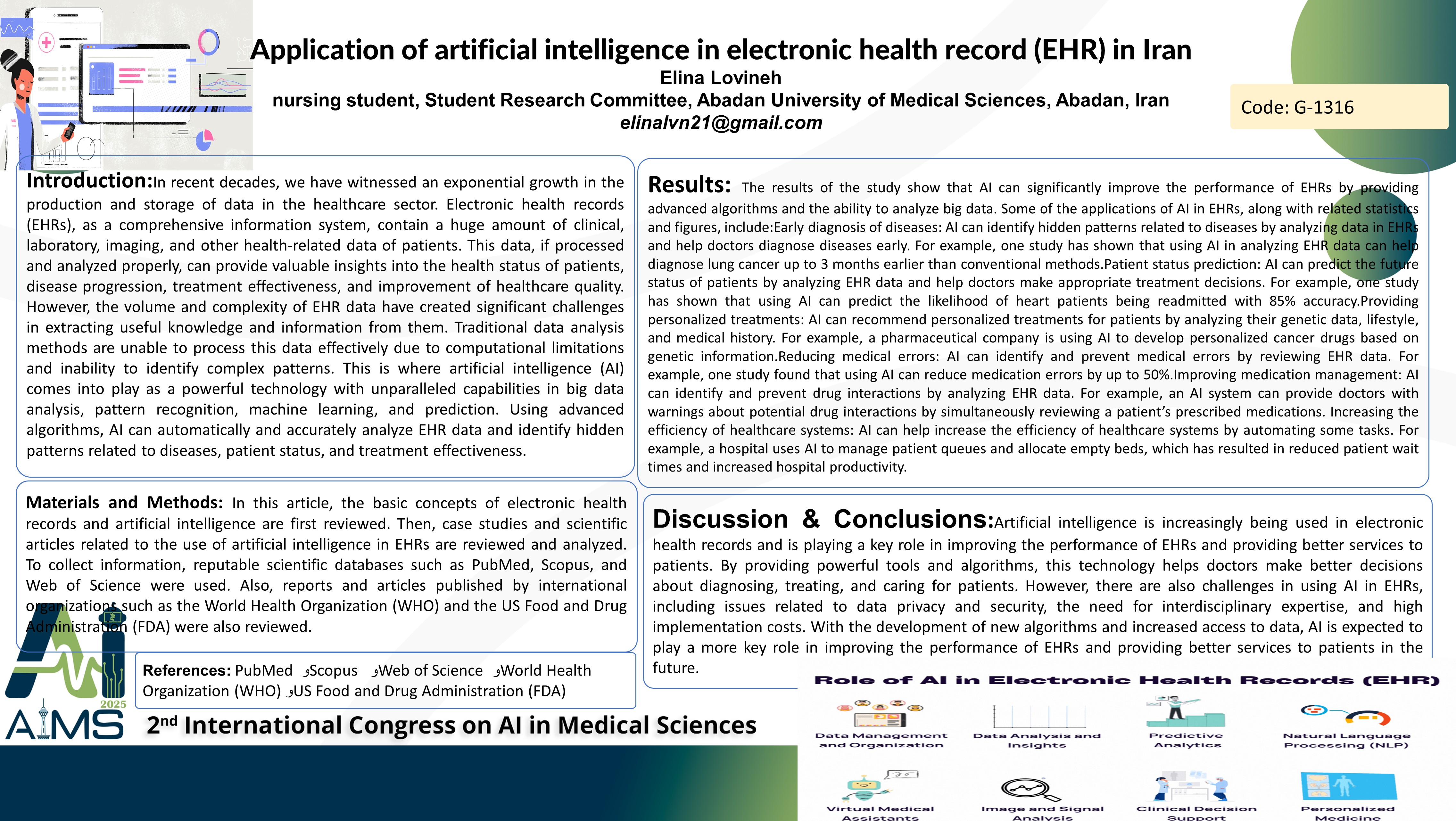Application of artificial intelligence in electronic health record (EHR) in Iran
Code: G-1316
Authors: Elina Lovineh * ℗
Schedule: Not Scheduled!
Tag: Clinical Decision Support System
Download: Download Poster
Abstract:
Abstract
Background and aims :Electronic Health Record (EHR) data holds immense potential for improving healthcare, but its volume and complexity pose analytical challenges. Traditional methods are inadequate for processing EHR data due to computational limitations and the inability to recognize complex patterns. Artificial Intelligence (AI) offers solutions through its capabilities in big data analysis, pattern recognition, machine learning, and prediction.This article reviews AI applications in EHRs, providing an updated perspective on how AI can enhance EHR performance and patient care, including relevant statistics and figures. Method:The review covers basic concepts of EHRs and AI. It analyzes case studies and scientific articles related to AI applications in EHRs, using data from sources like PubMed, Scopus, Web of Science, WHO, and the FDA. Results: AI significantly improves EHR performance by enabling advanced algorithms and big data analysis. Specific applications include: Early Disease Diagnosis: AI can identify hidden disease patterns, enabling earlier diagnoses (e.g., lung cancer diagnosis up to 3 months earlier). Patient Status Prediction: AI predicts patient outcomes to aid treatment decisions (e.g., 85% accuracy in predicting heart patient readmission). Personalized Treatments:AI recommends tailored treatments based on individual data (e.g., personalized cancer drugs based on genetic information). Reduced Medical Errors: AI identifies and prevents medical errors (e.g., medication errors reduced by up to 50%). Improved Medication Management: AI prevents drug interactions. Increased Healthcare System Efficiency:** AI automates tasks (e.g, patient queue management, bed allocation). Conclusion: AI is increasingly important in EHRs, enhancing their performance and improving patient care. It empowers doctors to make better decisions regarding diagnosis, treatment, and patient care. Challenges include data privacy, the need for interdisciplinary expertise, and implementation costs. Future AI advancements and increased data access are expected to further improve EHR performance and patient services.
Keywords
Healthcare Big Data Analytics, Digital Health
